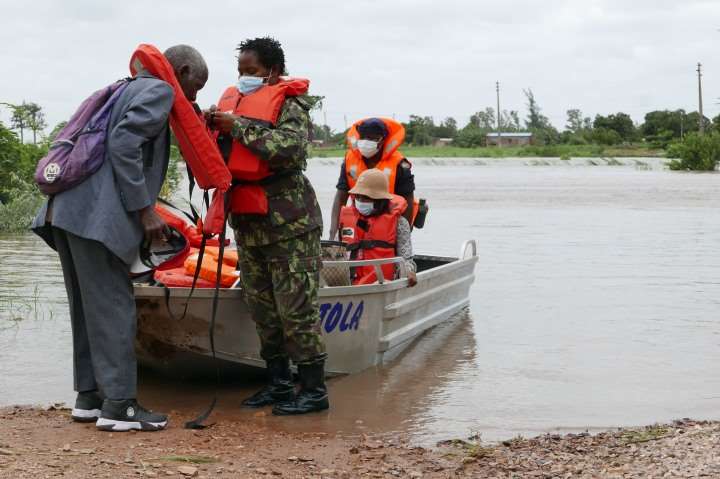Mozambique: Three killed by terrorists in Metuge - AIM
Mozambique: Boats placed on Maputo rivers in case rising water levels flood roads

FILE - For illustration purposes only. The delegate, cited today by Radio Mozambique (RM), said that one of the vessels is already operating along the Maputo river, in Matutuine district. [File photo: Notícias]
Mozambique’s national institute for disaster risk management and reduction (INGD) has positioned 10 boats in Maputo province to deal with a possible rise in the flow of three rivers in the region, an official source said on Friday.
The 10 boats have been positioned to facilitate the crossing of people and goods on roads that could be affected by the rise in the flow of the rivers Umbeluzi, Maputo and Incomati, according to Amir Abdula, INGD delegate in Maputo province.
The delegate, cited today by Radio Mozambique (RM), said that one of the vessels is already operating along the Maputo river, in Matutuine district.
“Our Maputo river basin at the moment is conditioned. For the crossing, [the public] needs to use the boat, so we have put a boat there to help,” Amir Adbula said.
The national water resources management directorate (DNGRH) has warned of a rise in the flow of the Incomati, Maputo and Umbeluzi rivers, due to discharges in South Africa and Eswatini , which are at “100% of storage levels in the large dams,” according to a bulletin sent to the media.
According to Agostinho Vilanculos, head of the department for river basins at the DNGRH, the waters could destroy 500 hectares of crops, affecting around 250 families, in the districts of Manhiça, Boane, Moamba and Magude, in Maputo province. “Our great concern is the Incomati basin, particularly in lower Manhiça, where we have the highest concentration of farmers,” Agostinho told Rádio Moçambique.
The INGD has asked the public to avoid crossing the rivers “without using boats or other safe means,” adding that lifeguards have also been placed in the region.
Mozambique is considered one of the countries most severely affected by climate change in the world, facing cyclical flooding and tropical cyclones during the rainy season, which runs from October to April.
In November this year, INGD announced it needed 7.4 billion meticais (€112 million) for the 2022/2023 rainy season, a period when at least 2.2 million people are expected to be affected.
The 2018/2019 rainy season was one of the most severe in memory in Mozambique: 714 people died, including 648 victims of Idai and Kenneth, two of the largest cyclones ever to hit the country.












Leave a Reply
Be the First to Comment!
You must be logged in to post a comment.
You must be logged in to post a comment.